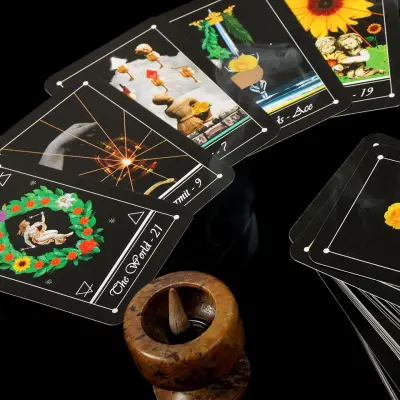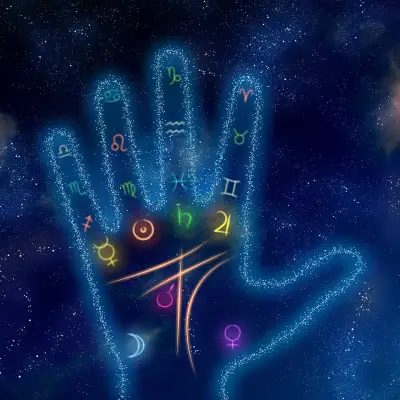Have you ever felt like something deep within you is missing? Perhaps there’s a sense of disconnection or a lingering feeling that a part of your inner self has been lost. For many, these feelings can be linked to the ancient concept of soul loss, and the practice of soul retrieval may offer a way to reclaim that missing piece.
Whether you’re new to the idea or have been drawn to shamanic practices, this guide will explore how to get your soul back through soul retrieval, its benefits, and what you can expect after a session.
Jump to:
- What is Soul Retrieval?
- Why Does Soul Fragmentation Happen?
- How Does Soul Retrieval Work?
- Can You Do Soul Retrieval Yourself?
- What Does Soul Retrieval Look Like?
- How Do You Know If You Need Soul Retrieval?
- What Are the Symptoms of Soul Retrieval?
- What to Expect After a Soul Retrieval
- How Long Does It Take for Soul Retrieval to Work?
- Is Grief a Form of Soul Retrieval?
- How to Do Shamanic Soul Retrieval
- Frequently Asked Questions About Soul Retrieval
- Study Shamanic Healing for £29
Recommended for you!
Best SellersWhat is Soul Retrieval?
Soul retrieval is a healing practice found in shamanism, believed to restore parts of the soul that have been lost due to trauma or emotional distress. When someone experiences intense pain—whether from grief, loss, abuse, or other forms of suffering—it is said that parts of the soul may fragment as a form of protection. These fragmented parts can leave a person feeling incomplete, disconnected, or even numb.
The definition of soul retrieval, then, is the process of retrieving and reintegrating these lost soul fragments, helping you return to wholeness. In shamanism, it’s thought that retrieving these pieces of your soul allows you to regain vitality, emotional balance, and spiritual connection.
Why Does Soul Fragmentation Happen?

Soul fragmentation is believed to occur as a result of severe emotional, psychological, or physical trauma. Think of it as a defence mechanism—your soul instinctively fragments to protect itself from overwhelming pain. While this can be a helpful response in the moment, over time, these missing pieces can cause emotional and spiritual imbalance, leading to feelings of emptiness or disconnection.
This fragmentation may manifest in various ways, such as:
- Difficulty feeling present in life
- Struggling with a lack of purpose or direction
- Feelings of depression, anxiety, or emotional numbness
How Does Soul Retrieval Work?
Soul retrieval is often guided by a shaman, a spiritual healer who serves as an intermediary between the physical and spiritual realms. During the process, the shaman enters a trance state, often through the use of drumming or other rhythmic sounds, to journey into the spiritual realm. Here, they search for the missing parts of your soul, bringing them back and guiding them to reintegrate with your present self.
Although the idea of a soul retrieval shaman journeying to retrieve lost pieces of your soul may sound mystical, many people who undergo the process report feeling a powerful sense of reconnection and healing afterwards.
Can You Do Soul Retrieval Yourself?

While soul retrieval is traditionally performed by a shaman, some people wonder whether it’s possible to do the process on their own. While some self-healing practices may help reconnect you with your inner self, soul retrieval is typically a complex and deeply spiritual process that requires guidance.
Shamanism soul retrieval techniques have been practised for centuries, with trained shamans having the knowledge and spiritual connection needed to safely guide you through this healing journey.
What Does Soul Retrieval Look Like?
The process of soul retrieval is highly personal, and no two experiences are exactly alike. During the session, you may experience a range of emotions as your soul fragments are reintegrated. It’s not uncommon to feel emotional as memories or sensations tied to past traumas resurface, but these feelings are part of the healing process.
You may also experience vivid dreams or a heightened sense of intuition in the days following a soul retrieval. These are often signs that the reintegration process is unfolding and that the lost parts of your soul are finding their place within you once again.
How Do You Know if You Need Soul Retrieval?
Knowing whether you need soul retrieval often comes down to recognising certain symptoms of soul loss. If you’ve experienced trauma or hardship and feel that something within you has changed or disappeared, it could be an indication of soul fragmentation. Here are some common signs:
- Feeling disconnected from your emotions or life
- Experiencing depression or anxiety without a clear cause
- Having a sense that something is missing, but not knowing what it is
- Difficulty recovering from grief or loss
What Are the Symptoms of Soul Retrieval?
It’s common to experience physical, emotional, or spiritual shifts after a soul retrieval. Immediately following the session, you may feel tired or emotionally sensitive. Some people report feeling euphoric, while others may need time to process the emotional release.
In the days and weeks following a soul retrieval, you may notice a growing sense of inner peace, reconnection, and even joy as the effects of the retrieval take hold.
What to Expect After a Soul Retrieval

The effects of soul retrieval vary from person to person, but many people report feeling a sense of lightness, clarity, or emotional release after the session. You might feel more connected to yourself, experience fewer emotional blockages, or find it easier to move forward from past traumas.
However, it’s important to remember that soul retrieval is just the beginning of the healing process. Once the lost parts of your soul have been retrieved, it can take time to fully integrate them into your being. The healing process may continue for days, weeks, or even months after the session.
How Long Does It Take for Soul Retrieval to Work?
The timeframe for healing after a soul retrieval is different for everyone. Some people may feel immediate changes, while for others, the healing process is more gradual. The key is to be patient and gentle with yourself, allowing the reintegration process to unfold naturally.
Typically, you may notice subtle shifts in your emotions, thoughts, and even physical energy as your soul fragments are integrated. Healing may continue over time, as the effects of soul retrieval ripple through all aspects of your life.
Is Grief a Form of Soul Retrieval?

Grief is often linked to the experience of soul loss. When you lose a loved one or go through a major life change, it can feel as though part of your soul is grieving alongside you.
While grief itself isn’t the same as soul retrieval, the process of moving through grief and reclaiming your emotional balance can parallel the healing aspects of soul retrieval. By addressing the emotional wounds left by grief, soul retrieval may help you regain a sense of wholeness and peace.
How to Do Shamanic Soul Retrieval
If you’re considering soul retrieval, it’s important to find a skilled shaman who can guide you through the process. The best way to begin is by researching local or online practitioners who specialise in shamanic healing and soul retrieval. Look for someone who has experience, and, if possible, find reviews or testimonials from others who have gone through the process.
In preparation for your session, it’s helpful to approach the experience with an open mind and heart. Trust that your soul knows what it needs to heal, and that the shaman is there to assist you in the process.
Recommended for you!
Best SellersFrequently Asked Questions About Soul Retrieval
Can Soul Retrieval help with physical illness?
While soul retrieval is a spiritual practice and not a replacement for medical treatment, many people who undergo the process report improvements in their overall well-being, which can indirectly support physical healing. By addressing emotional and spiritual imbalances, soul retrieval may help release blocked energy and promote a sense of vitality that can contribute to better health.
Is Soul Retrieval safe?
When guided by an experienced shaman or practitioner, soul retrieval is considered safe. The process involves reconnecting with lost parts of your soul in a controlled, healing environment. It's important to choose a practitioner who is well-versed in shamanic healing and who can provide aftercare or support if needed following the session.
Do I need multiple Soul Retrieval sessions?
The number of soul retrieval sessions you may need depends on your individual circumstances and the extent of soul fragmentation. Some people feel significant improvement after one session, while others may benefit from additional sessions to fully integrate the retrieved soul fragments. It’s best to discuss your needs with the practitioner.
How do I prepare for a Soul Retrieval session?
Preparing for a soul retrieval session involves creating a calm and open mindset. It can be helpful to reflect on your intentions for the session and to come with an open heart. You might also want to avoid consuming alcohol or heavy foods before the session to maintain clarity. Your practitioner may give specific advice based on their approach.
Will I remember the events that caused my soul fragmentation?
During a soul retrieval session, some people recall memories related to their soul loss, while others may not. It’s not necessary to remember specific events for the healing to work. The important aspect of the process is the return of the lost soul fragments and the emotional or spiritual healing that follows.
How do I care for myself after a Soul Retrieval?
After a soul retrieval, it’s essential to practice self-care and allow time for reflection. Gentle activities like journaling, meditating, or spending time in nature can help you process the experience. Some people also benefit from taking salt baths or lighting candles to symbolise their healing process. If you feel emotional, give yourself permission to rest and integrate the changes.
Can children or animals undergo Soul Retrieval?
Soul retrieval can be performed for children and animals, though the approach may be slightly different. Children, especially, can be sensitive to trauma and emotional disturbances, and a trained practitioner can assist them in retrieving lost parts of their soul in a way that’s gentle and supportive.
What’s the difference between Soul Retrieval and other healing modalities?
Soul retrieval is unique in its focus on reclaiming lost parts of the soul due to trauma. Unlike practices such as energy healing or meditation, which focus on balancing energy, soul retrieval specifically targets soul fragmentation and reintegration. It is often combined with other healing practices for a more holistic approach to emotional and spiritual recovery.
Study Shamanic Energy Healing for £29
If you’d like to learn more about shamanic healing, consider the Shamanic Energy Healing Diploma Course with Centre of Excellence. This fascinating course offers a valuable opportunity to deepen your understanding of these ancient healing practices and discover new ways to reclaim your energy and spirit. Enrol today for just £29!













